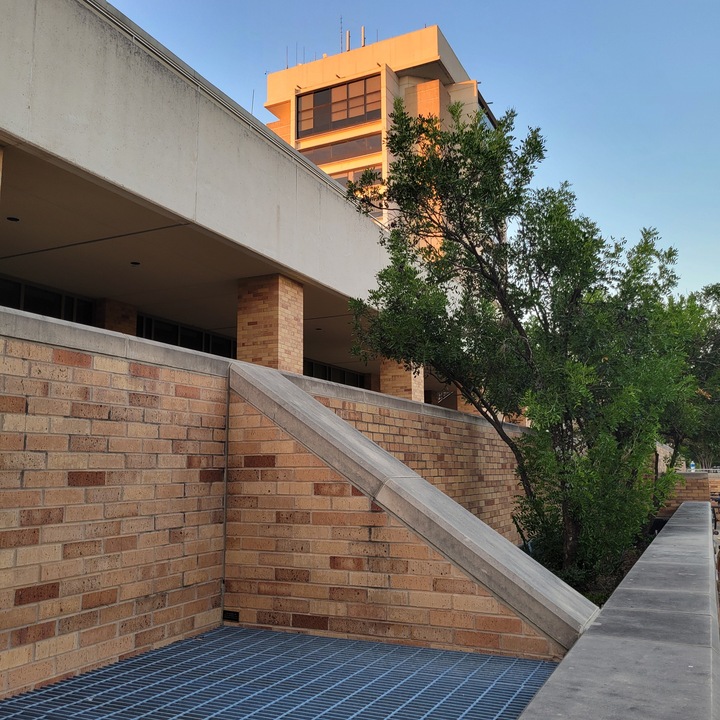At age 18, Lochan Mourty Dugan made the move to Aggieland. Along with bags of college essentials, Dugan also carried the weight of her obsessive anxiety. Amplified by the transition from high school to college, Dugan said her ability to function became impaired.
Obsessive thoughts can come in all forms, whether it is rereading the line of a book or the need to check multiple times if a door is locked. Regardless of what the thoughts are, they are unwelcome and can cause gut-wrenching anxiety for many people.
An industrial and system engineering sophomore, Dugan said overcoming her obsessions would take hours of sitting and processing everything going through her mind. The thoughts were coupled with a compulsive behavior – endlessly reading books – as a form of escapism.
“I found a community of people that were going through experiences similar to me, and they called it OCD,” Dugan said.
Dugan said she first began worrying obsessively and consistently during middle school. Since her family wasn’t fully educated about mental health; Dugan said she spent her time searching every solution she could put a name to for her unique anxiety.
“Your OCD is not logical,” Dugan said. “The whole point of it is that it’ll pop this intrusive thought into your head that makes sense. It doesn’t matter if it makes sense or not. It could be things that most likely won’t happen, but it’s technically a possibility, and it’ll freak you out.”
Dugan said she responded to her increased anxiety by seeking out a psychologist through Counseling and Psychological Services, or CAPS, at Texas A&M. Dugan received an official diagnosis from CAPS confirming what she had speculated about for six years — she has OCD.
Obsessive-compulsive disorder, or OCD, is characterized by repeated, intrusive, unwanted thoughts and irrational, excessive urges to perform specific actions. One in 40 adults in the U.S. has OCD. With the many changes, college brings unique stress to students’ lives.
According to beyond OCD.org, many young people experience their first symptoms while away at school. These students who experience symptoms of OCD can benefit from cognitive behavioral therapy or medications administered by a professional, said Kristie De La Garza, M.S., and Licensed Professional Counselor-Supervisor for CAPS at A&M.
“I really can’t emphasize enough that a good friend would try to help a student get connected with resources that know about OCD,” De La Garza said. “I don’t think our community hears that enough.”
Dugan said it is essential to bring awareness to OCD and help people understand it. Being educated about mental illness can change or save someone’s life. People are generally open-minded and want to help her cope, but Dugan said not everyone knows effective ways to help because of a lack of understanding.
According to the National Alliances on Mental Illness, one of the best methods of helping a loved one feel like they are more than their diagnosis is to show patience.
“The one thing I love about this generation is that a lot of awareness is being brought up about these topics, so a lot of my friends and everyone, even if they don’t have the disorder, have been very open-minded and supportive of it,” Dugan said. “The amount of compassion and understanding that I’ve gotten from the friends that I’ve made here has been huge.”
According to the National Alliances on Mental Illness, learning about a loved one’s symptoms and experience with OCD and communicating openly – when they are ready – are additional ways to help support their mental health.
Speaking up and asking for help, Dugan said, was difficult. Most of her freshman year was spent out of focus, with her OCD prohibiting her from going to class, studying for tests and going out with her friends.
“That was like the last time I was asking for help – I was like ‘I’m serious; I’m not okay,’” Dugan recalled.
She said her family recognized the severity of her anxiety and helped get her to therapy. Dugan sought counseling from CAPS where she received free on-campus treatment from experts she could trust. Dugan’s said her stress was also relieved when she received access to disability resources in addition to therapy.
“It was definitely hard to ask for help, but I’m glad I did. I’m glad I pushed through it,” Dugan said.
Rationalizing and researching are the two main ways that help Dugan most when coping with her OCD, she said. Being informed on unknown concepts that fill her mind has made it easier to push through, she said. Research makes her thoughts a tangible thing she can understand. She also calms herself by telling herself the facts and using logic to combat intrusive thoughts quickly. In the future, Dugan said she is interested in cognitive behavioral therapy to learn further how to handle her triggers.
Individuals with OCD do not want to have these thoughts, and, in most cases, people with OCD realize their ideas don’t make any sense, according to the International OCD Foundation. Dugan said she recalls she has had these types of thoughts, and research shows that many other people with OCD have intrusive thoughts of hurting someone they love, but the common misconception is that they want to act on those thoughts, which is not true.
“It took me a lot of research to figure out like, no, this is not something that I want to do. It’s the intrusive thoughts that are put there to cause the anxiety, and that’s what causes me to panic,” Dugan said. “[That’s] something I wish someone would’ve told me when I was younger.”
Aggie Mental Health Ambassadors have given Dugan an outlet to bring awareness to OCD and general mental health while making a difference at A&M, she said. It is a valuable experience because mental health is something that people need to talk about and understand. It’s normal for someone with OCD to be concerned or afraid about their symptoms, according to beyondOCD.org, but also to remember that “you’re not crazy,” and “you’re not alone,” or any other way the disorder is labeled.
It’s essential for friends or relatives of someone with OCD or other mental health disorders to actively listen to their loved one with compassion and respect, said Leonardo Garza, president of Aggie Mental Health Ambassadors.
“You know, it really just takes a conversation – to really listen to them – because I feel like, yeah, they have all of these resources spread out for them, but it really takes that special someone in their life to give them that support and that little push [to get help],” Garza said.
Discomfort is where the growth is, said De La Garza, so you have to shine the light on that discomfort to grow. For a complete list of services provided by CAPS, visit CAPS.tamu.edu.
Understanding OCD and how to help
April 3, 2022
Photo by Courtesy of Jessica King
Lochan Mourty Dugan said it was only after she found a community of people going through similar experiences that she learned about Obsessive-compulsive disorder. She said she has found support, compassion and coping skills since receiving a formal diagnosis through CAPS.
1
Donate to The Battalion
$2790
$5000
Contributed
Our Goal
Your donation will support the student journalists of Texas A&M University - College Station. Your contribution will allow us to purchase equipment and cover our annual website hosting costs, in addition to paying freelance staffers for their work, travel costs for coverage and more!
More to Discover









